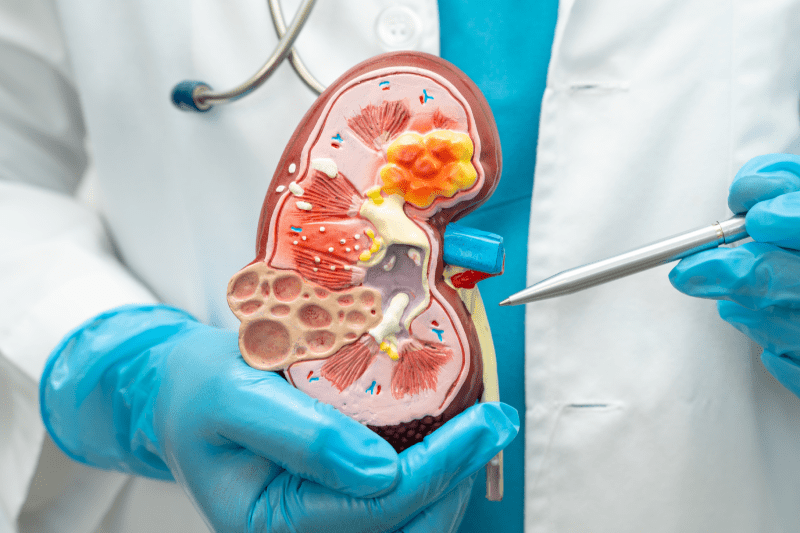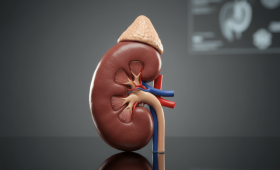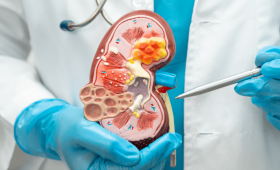What Is the Average Cost of a Kidney Transplant Operation in Turkey?
The cost of a kidney transplant operation in Turkey varies depending on the hospital choice, the surgeon’s experience, the patient’s general health condition, and any additional treatments required before/after the surgery. Generally, these costs are offered as a package that includes the operation, hospital stay, necessary medications, and follow-ups. It is much more economical compared to Western countries and is one of the main reasons why many international patients prefer Turkey. Government support for health tourism and low operating costs make these affordable prices possible.
Why Has Turkey Become a Popular Center for Kidney Transplants?
Turkey has become an international center for kidney transplantation thanks to its high success rates, experienced surgeons, and modern medical infrastructure. Major investments in health tourism have led to the establishment of state-of-the-art hospitals. These hospitals provide services at international standards, and the hospital stay and treatment processes are quite comfortable. Furthermore, Turkey’s geographical location and easy accessibility are among the reasons why patients choose it.
How Can I Find the Best Doctors and Hospitals for a Kidney Transplant?
It is important to do extensive research to find the best doctors and hospitals. Kidney transplant centers in Turkey usually operate within University Hospitals or private hospitals. Research centers that are accredited by official institutions such as the Turkish Transplantation Foundation. Examine the doctors’ resumes, their experience in this field, and their international publications. Comments and references from patients who have had surgery at these centers can also help you make the right decision.
What Are the Kidney Transplant Success Rates in Turkey?
Kidney transplant centers in Turkey have success rates above the international average. These rates are particularly high for transplants from living donors and can exceed 95%. Success rates vary depending on the hospital, the surgeon, and the patient’s general health condition. Long-term follow-up and the quality of post-operative care for kidney transplant patients also play a critical role in maintaining high success rates.
How Does the Living Donor Kidney Transplant Process Work?
The living donor kidney transplant process begins with a detailed medical and psychological evaluation of the recipient and the donor. The potential donor undergoes a comprehensive series of tests to determine if they are a suitable candidate for a kidney transplant. These tests include blood type, tissue compatibility (HLA), general health status, and organ function assessment. After a compatible donor is found, the kidney is taken from the donor and transplanted into the recipient in two separate surgeries. This process is generally managed by a coordinator within the hospital.
How Does the Cadaveric Kidney Transplant Process Work?
A cadaveric kidney transplant occurs when an organ is taken from a person who has been declared brain dead but whose organs are still functional. In Turkey, cadaveric transplants are managed through a national organ waiting list system. Patients are placed on this list based on their blood type and tissue compatibility. When a suitable organ is found, the patient is called to the hospital urgently. This process involves a longer and more uncertain waiting period compared to a living donor transplant.
What Are the Legal and Ethical Processes for Foreign Patients?
The kidney transplant process for foreign patients in Turkey is subject to specific legal and ethical regulations. In living donor transplants, it is a legal requirement for the donor to be a first-degree relative of the recipient. If the donor is not related to the recipient, the transplant is examined in detail by an ethics committee. During this process, detailed investigations are carried out to prevent organ trafficking and verify the donor’s voluntary consent. These legal processes aim to protect patient safety and ethical standards.
What Are the Required Tests for a Kidney Transplant?
A comprehensive series of tests is performed on both recipient and donor candidates before a kidney transplant. These tests include blood type and tissue compatibility (HLA) tests, kidney function tests, infection screenings (Hepatitis B, C, HIV), evaluation of heart and lung functions, and psychological evaluation. For donors, advanced imaging methods are also used to determine the anatomical structure and function of the kidneys. These tests ensure that the transplant procedure is carried out safely.
What Is the Waiting Period for a Kidney Transplant?
The waiting period for a kidney transplant in Turkey varies greatly depending on the type of transplant. In the case of a living donor transplant, the process moves much faster once a compatible donor is found, and surgery is usually planned within a few weeks or months. For a cadaveric transplant, the waiting period is longer and varies according to the patient’s blood type, tissue compatibility, and their position on the waiting list. This period can extend from several months to several years.
How Long Does the Kidney Transplant Operation Take?
The kidney transplant operation typically takes 3 to 4 hours, depending on the surgical team’s experience and the complexity of the surgery. During the operation, the healthy kidney taken from the donor is placed in the recipient’s groin area and connected to the blood vessels and urinary tract. The duration of the surgery can also vary depending on whether the donor’s operation is laparoscopic (closed) or open surgery. This procedure, performed under general anesthesia, is carried out meticulously for the patient’s comfort and safety.
How Does the Recovery Process Work After a Kidney Transplant?
The recovery process after a kidney transplant operation usually begins with a 10-14 day hospital stay. During this period, the patient begins using immunosuppressant medications. Doctors closely monitor kidney functions. For the first few months, the kidney’s adaptation to the new body is monitored with regular check-ups and blood tests. Patients should be careful about the risk of infection during the first year after the operation and follow the doctor’s instructions.
What Are the Potential Risks and Complications of a Kidney Transplant?
Like any surgical procedure, a kidney transplant has some risks and complications. The most common risks include bleeding, infection, organ rejection, and urinary tract problems. Organ rejection is a condition where the body perceives the new kidney as foreign, and immunosuppressant medications are used to minimize this risk. An experienced surgical team and good post-operative care significantly reduce these risks.
How Does Quality of Life Change After a Kidney Transplant?
A kidney transplant significantly improves the patient’s quality of life. After a successful transplant, patients are freed from the restrictions imposed by dialysis treatment. They feel more energetic, their eating habits normalize, and they can return to their social lives. Symptoms such as fatigue and loss of appetite caused by chronic kidney disease disappear. However, patients need to use medication for life and go for regular check-ups.
Are Airport and Accommodation Services Provided for Foreign Patients?
Many kidney transplant centers in Turkey offer comprehensive service packages for international patients. These packages generally include airport pickup and transfer services. Accommodation options in hospitals or nearby partner hotels are also provided. These services aim to minimize the logistical challenges faced by foreign patients during their treatment and increase patient comfort.
What Should Nutrition Be Like After a Kidney Transplant?
Nutrition after a kidney transplant is very important for the health of the kidney and overall body health. A special diet program recommended by the doctor is followed for the first few weeks. Later, patients can usually switch to a more liberal diet, but they still need to be careful with their intake of salt, potassium, and phosphorus. Adequate protein, fiber, and fluid intake are important. A dietitian can help create a personalized nutrition plan.
Who Is the Most Suitable Candidate for a Kidney Transplant?
The most suitable candidates for a kidney transplant are people with kidney failure and who have a general health condition that can withstand the benefits of organ transplantation. Patients without serious additional diseases such as active infections, uncontrolled heart disease, or cancer are more suitable candidates. The patient’s psychological readiness for the process is also important for successful results. All these criteria are evaluated with detailed tests performed before the transplant.
Can a Foreigner Legally Donate an Organ?
According to the laws of the Republic of Turkey, for a living organ transplant to be performed on a foreign person, the donor must be a close relative of the recipient. This usually requires proof of kinship with documents. For non-related transplants, the approval of an ethics committee is mandatory. These regulations are established to prevent illegal organ trafficking and to ensure the donor’s voluntary consent. These processes are applied meticulously.

What Medications Are Used After a Kidney Transplant?
After a kidney transplant, patients use immunosuppressant drugs for life. These drugs are necessary to prevent the body from perceiving and rejecting the new kidney as foreign. The medications are determined by the doctor based on the patient’s condition, and their dosages are adjusted with regular blood tests. The regular and correct use of these medications is vital for the kidney to remain healthy and long-lasting.
Does Sexual Life Normalize After a Kidney Transplant?
After a successful kidney transplant, patients’ sexual lives generally normalize. Sexual dysfunction caused by chronic kidney disease disappears after the transplant. However, it is important to talk to the doctor before resuming sexual activity during the post-operative recovery period. Some medications used can affect sexual desire, but this can be managed with the doctor’s advice.
How Many Days Do I Need to Stay in Turkey for a Kidney Transplant?
For foreign patients, the kidney transplant process can usually take about a month. This period includes the time required for pre-operative tests and evaluations, the surgery itself, and the post-operative hospital stay and follow-ups. Patients stay in the hospital or nearby for the first few weeks for regular check-ups. This period can vary depending on the patient’s recovery speed.
Do Transplant Centers in Turkey Have International Accreditations?
Yes, many major kidney transplant centers in Turkey have international accreditations such as JCI (Joint Commission International). These accreditations show that the hospital’s service quality, patient safety, hygiene standards, and medical protocols are at international standards. This is a source of trust for foreign patients and guarantees the quality of service.
Does the Need for Dialysis Disappear Completely After the Transplant?
After a successful kidney transplant, the patient’s need for dialysis disappears completely. The transplanted kidney begins to perform all the functions required by the body. This frees patients from the restrictions imposed by dialysis treatment and offers them a more independent life. The proper functioning of the transplanted kidney is supported by regular doctor check-ups and medication use.
Is There an Age Limit for a Kidney Transplant?
There is no definitive upper age limit for a kidney transplant. What is important is not the patient’s chronological age but their biological age and general health condition. Elderly patients whose heart, lung, and other organ functions can withstand the transplant surgery can also have a successful transplant. In children, the lower age limit for a transplant is determined by the child’s growth and development status.
Is Pregnancy Possible After a Transplant?
Yes, pregnancy is possible for female patients who have had a kidney transplant. However, it is very important to talk to the doctor before planning a pregnancy and determine an appropriate time. Pregnancy may require changing the dosage of some immunosuppressant drugs or switching to a different medication. It is recommended to wait for about a year after the transplant and ensure that kidney functions are stable.
Is Robotic Surgery Used in Kidney Transplants?
Yes, some advanced kidney transplant centers in Turkey use robotic surgery techniques. Robotic surgery is a minimally invasive method and is used in donor surgeries. This method provides smaller incisions, less blood loss, less pain, and a faster recovery process. This technology increases patient comfort and facilitates the post-operative period.
What Lifestyle Changes Are Required After a Transplant?
Adopting a healthy lifestyle after a kidney transplant is vital for the new kidney to last for a long time. Patients should exercise regularly, eat healthily, and stay away from smoking and alcohol. It is also very important to use all medications recommended by the doctor regularly and to go for routine check-ups. These changes help protect the kidney’s functions and improve the patient’s overall health.
How Does the Kidney Transplant Process Work in Children?
The kidney transplant process in children is similar to that in adults, but the special needs of children are taken into consideration. The transplant can be planned at an early age to support the child’s development and improve their quality of life. A multidisciplinary team of pediatric nephrology and surgical specialists manages the child’s treatment process. Families are provided with detailed information about the process and psychological support is also offered.
Are Foreign Language Services Required for the Transplant Available?
Many large hospitals in Turkey have international patient departments specifically designed for foreign patients. These departments employ translators and coordinators who provide services in languages such as English, Arabic, and Russian to solve patients’ communication problems. These services make patients feel more comfortable throughout their treatment process.
What Happens If the Transplant Fails?
If the kidney transplant fails, the patient has to return to dialysis. Failure usually occurs when the kidney loses its function due to organ rejection or another complication. In this case, doctors re-enroll the patient in the dialysis program and evaluate whether they are a suitable candidate for a second kidney transplant.
Are Psychological Support Services Provided After a Kidney Transplant?
A kidney transplant can be a physically and psychologically challenging process for both the recipient and the donor. Therefore, many transplant centers offer psychological support services to patients and their families. Psychologists or psychiatrists help patients cope with the process, manage their expectations, and adapt to the post-operative period.
How Is the Voluntariness of Donor Candidates Verified?
Verifying the voluntariness of living donor candidates is one of the most important steps in the legal and ethical process. Candidates are questioned in detail by the ethics committee. During this questioning, it is checked whether the donor is under any pressure, whether they have received any financial gain in return for the organ donation, and whether they have been fully informed about the risks of the transplant procedure.
Why Are Doctors in Turkey So Experienced?
Turkey is a center where thousands of kidney transplant surgeries are performed every year. This high volume allows surgeons and healthcare teams to constantly gain experience and improve their skills in this field. An experienced surgical team increases the success rate of the surgery and is more competent in managing possible complications.
How Often Are Follow-up Appointments Made After a Kidney Transplant?
Follow-up appointments after a kidney transplant are much more frequent in the first months. The check-ups, which are done several times a week in the first few weeks, eventually turn into monthly and yearly check-ups. In these check-ups, kidney functions are closely monitored with blood tests, and the dosages of immunosuppressant drugs are adjusted. Regular check-ups are vital for early detection and treatment of a possible problem.
How Are the Quality and Safety of Kidney Transplants Ensured?
The quality and safety of kidney transplants in Turkey are ensured by strict inspections and legal regulations. The Ministry of Health regularly inspects transplant centers. In addition, international accreditations and membership of surgeons in professional organizations are an indicator of quality. Patient safety is ensured through a detailed pre-operative evaluation, meticulous work during the surgery, and a good follow-up process after the surgery.
What Is the Pre-transplant Consultation Process for Foreign Patients?
Foreign patients usually start the online consultation process with the hospital from their home country. Patients send their medical reports and test results to the hospital. The hospital evaluates these documents to determine if they are suitable for a transplant. If the initial evaluation is positive, the patient comes to Turkey, and the final pre-transplant tests and face-to-face meetings are held.


